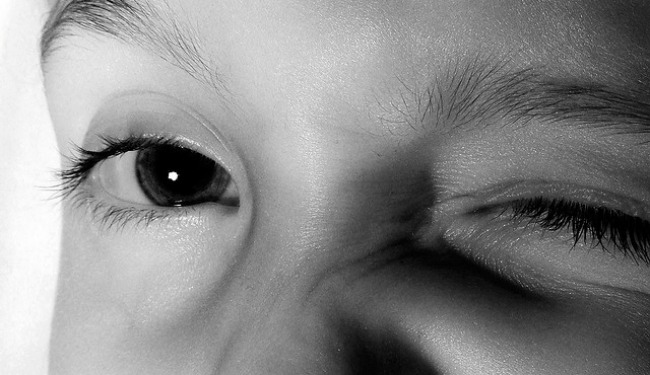Deception Is in Social Psychological Research Study Blue

stef thomas/Flickr
Are meat eaters more selfish than vegetarians? Do chaotic situations promote stereotyping? Do we feel smarter when those close to us win awards? These and other intriguing questions have been recently addressed by the research of prominent Dutch psychologist Diederik Stapel. Just 15 years after receiving his PhD with honors in 1997, Stapel had published over 130 scientific papers, received a career trajectory award from the Society of Experimental Social Psychology, and risen to become dean of the faculty at his university. In 2011, however, it began to dawn on his students that there was just one problem with his research: he was making up the data.
An ongoing investigation by his university has so far revealed that Stapel fabricated the data for no fewer than 55 of his papers. This has led many prominent scientific journals, including Science, to issue retractions. Stapel has since publically apologized to his colleagues and students. He also published a memoir, Derailed, in which he recounted his personal descent into scientific misconduct. Fellow psychologists have characterized it as "priceless and revealing," especially its "unexpectedly beautiful" final chapter, though they also note that it is rife with plagiarized lines from the writings of Raymond Carver and James Joyce.
How did such an internationally recognized psychologist, a man whose work was featured in The New York Times and Time, become entangled in such a web of deception? Most of us would like to suppose that the appearance of deception in a scientific field such as psychology is a fluke, the work of a rogue researcher on the fringes of the discipline. Yet the real roots of the problem are deep and widely spread. The problem goes to the core of contemporary psychology: Deception has been accepted by many psychological researchers as a necessary evil in the pursuit of truth.
Consider the following account.
Beth is a sophomore psychology major at a large urban research university. As a requirement for her introductory psychology course, she volunteered as a subject for a study examining the difference between communication that takes place online and in person. A pair of graduate students dressed in white lab coats led her to a small cubicle, where she read a short article about the history of medicine and discussed it in a chat room with someone she was told was another student. She was surprised when her chat partner expressed disbelief about the accomplishments of an African American researcher, but she brushed off the remark and finished her assignment. Afterwards, a third graduate student took her into a different room and informed her that this was in fact a study on contemporary racism. Beth then remembered the other graduate students casually making derogatory remarks about another student, who was also African American. The debriefing graduate student gave her some paperwork to read about the study's procedures and aims and sent her on her way. Reflecting on her experience, Beth felt regret and disappointment. Why had she been deceived?
There is something deeply problematic about employing deception in the search for truth. Yet deception has played a prominent -- and many would say integral -- role is psychological research for well over a century. A participant who enrolls in a research study is often misled about its real purpose, the responses researchers are actually monitoring, and the true identity of fellow "subjects." In some cases, participants are not even informed that they are involved in a research study. How did the tradition of deception develop in psychological research, where does it stand today, and what are the problems with its ongoing use?
Numerous rationales may be offered for deception. One is that deception is all around us, permeating fields such as advertising and politics. Proponents suggest there is no reason to hold psychological researchers to a higher standard. Another is the argument that subjects are not really harmed. Feelings may be hurt, but no one is being asked to donate blood or sacrifice a limb under false pretenses. The most frequent argument is that much research would be impossible without deception. Just as physicians check respiratory rates without calling attention to a patient's breathing, psychologists need to observe behavior when subjects are unaware. Deception is rationalized as the only way to reproduce natural behavior in the laboratory setting.
Over the first two-thirds of the 20th century, deception became a staple of psychological research. According to a recent history of deception in social psychology, before 1950 only about 10 percent of articles in social psychology journals involved deceptive methods. By the 1970s, the use of deception had reached over 50 percent, and in some journals the figure reached two-thirds of studies. This means that subjects in social psychology experiments -- at least those that survived the peer-review process and made it to publication -- had a better than 50-50 chance of having the truth withheld from them, being told things that were not true, or being manipulated in covert ways.
Proponents of deception argue that they are using little lies in order to uncover large truths. Many subjects voice no objection, and sophisticated ethical defenses of the practice are readily provided. In a perfect world, perhaps, deception would be scrupulously avoided, but ours is not perfect, so proponents argue that compromises must be made. Of course, they admit, researchers should do their best to avoid deception wherever possible, employing it only as a last resort. In some cases, it may be possible to develop alternative methodologies that do not require it. In the end, however, deception is an indispensable tool in the pursuit of knowledge.
The American Psychological Association gives explicit support to the argument that dishonesty is necessary for scientific progress. The view that the ends justify the means in apparent in the APA's Ethical Principles of Psychologists and Code of Conduct, which reads as follows: "Psychologists do not conduct a study involving deception unless they have determined that the use of deceptive techniques is justified by the study's significant prospective scientific, educational or applied value and that effective non-deceptive alternatives are not feasible." Moreover, the APA code explicitly forbids the use of deception in research that is reasonably expected to cause "physical pain or severe emotional distress." The implication seems to be that deception by itself is not harmful or objectionable.
Psychology is the nation's second most common undergraduate major, numbering around 90,000 students since the mid-2000s. Permissive attitudes toward deception permeate many introductory psychology courses. To receive a passing grade, students are often required to serve as subjects in several psychological studies, like the one described above. In the beginning, many students have no idea that they may be deceived by researchers, teachers, and fellow students. As the course progresses, they learn that many of the best-known psychological experiments of the 20th century were founded on deceptions of one kind or another. By the end of the semester, students may be convinced that deception is a legitimate technique.
Suppose an undergraduate psychology student goes home to visit her family during a school break. During the visit a friend poses a question that the student would prefer, for one reason or another, not to answer truthfully. Having been told by textbook authors and professors that deception is often justified for the sake of higher ends, might such a student be more likely to withhold information, provide false information, or distort the truth? After all, if deception is permitted in scientific experiments in the pursuit of knowledge, why should it be impermissible in the context of everyday relationships? Where is the harm in a white lie?
Consider the interaction between a used car salesman and a customer. Should the buyer blindly trust everything the salesman says? Of course not. But should this same principle apply in the domains of research and higher learning? "Buyer beware" may be the motto of the marketplace, but "Let research subjects beware" is hardly the sign we want to see hanging above the laboratory door. The practice of deception in research damages the relationship between science and the community it studies. The more suspiciously subjects regard research, the less scientifically valuable their participation becomes. The more we expect to be deceived, the less authentically our responses represent what we really think and feel.
Yet the effect of deception on research is not even the most important thing at stake. The fundamental concern is ultimately the ethos of our entire culture. Scientists are highly trusted. As such trusted figures repeatedly turn out to be engaging in deception, trust in them -- and perhaps in everyone else -- inevitably declines. Deception in psychological research undermines the notion that we can expect honesty from those entrusted with the pursuit of truth.
Recommended

Deception, like truth telling, can be habit forming. The more frequently we engage in dishonesty, the easier and more natural it becomes. Do we really believe that the practice of deception can be safely contained in the lab? Are we ready to sacrifice the standard of truthfulness and the habit of honesty for the sake of a seriously misguided conception of scientific progress? Scientifically sanctioned deception, we must accept, is inherently incompatible with the pursuit of truth.
Source: https://www.theatlantic.com/health/archive/2013/04/a-study-in-deception-psychologys-sickness/274739/
0 Response to "Deception Is in Social Psychological Research Study Blue"
Postar um comentário